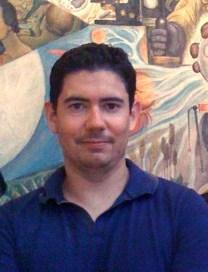Economics professor awarded grant to research how coalitions are formed
University of Hawaiʻi at MānoaContact:
Posted: Nov 24, 2010
What is behind the human tendency to vote for a candidate of the same race, gender or even religion? Can the consequences of people forming a coalition with those who have similar characteristics perhaps bring enlightenment as to how military wars are started?
UH Mānoa Assistant Professor of Economics Ruben Juarez, 28, will be conducting such research for the next three years, after being selected one of 43 participants in the prestigious Young Investigators Program of the U.S. Air Force Office of Scientific Research.
He will receive a total of $360,000 from 2010-13 to design mathematical models that more accurately predict the outcomes of competitive models. His methodology takes into account the formation of coalitions when agents possess differing levels of power or attributes, such as cultural or ideological affinities.
The research will provide more accurate predictions on conditions under which coalitions are formed and sustained, and the implications that might result. Better predictions of equilibrium outcomes could have important applications, for instance, in everything from political contests to military wars.
Juarez obtained a PhD from Rice University in 2008 and has been teaching at UH Mānoa for two years. His main research is in microeconomics, especially game theory.
“I am excited about the project and the potential of advancing the state of knowledge in the field,” says the Ala Moana area resident. “Understanding what cultural characteristics play a role when forming coalitions is a very difficult question, but I am confidently hopeful that I can contribute to a better understanding of this.”
The U.S. Air Force Office of Scientific Research’s Young Investigators Program fosters creative research in science and engineering, enhances early career development of outstanding young researchers, and increases opportunities for young researchers to recognize the Air Force mission and related challenges in science and engineering.
The awards are open to scientists and engineers, working at U.S. research institutions, who have earned doctorates or equivalent degrees in the last five years, and who show exceptional ability and promise for conducting research. Competition is intense, with success rates of only 13-19 percent in the past three years.

